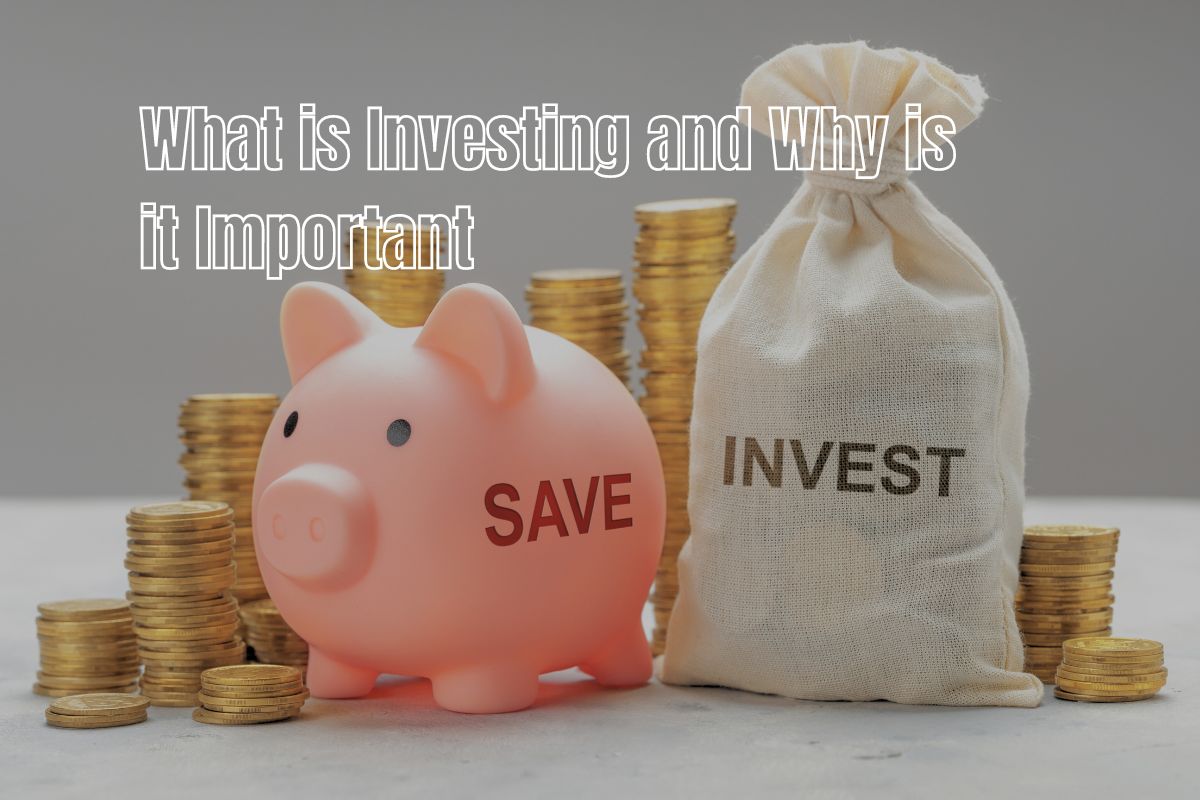Introduction
In today’s fast-paced world, financial stability and future planning have become crucial aspects of our lives. One of the key ways to achieve these goals is through investing. But what exactly is investing, and why is it so important? In this comprehensive guide, we will explore the ins and outs of investing, its significance, and how you can get started on your investment journey.
What is Investing?
Investing refers to the act of allocating resources, such as money, time, or effort, into an endeavor with the expectation of generating a positive return or outcome in the future. It involves making strategic decisions to purchase assets, securities, or other financial instruments that have the potential to grow in value over time.
Investing can take various forms, including NPS, stocks, bonds, real estate, mutual funds, and more. Each type of investment carries its own set of risks and rewards, and it is essential to understand these factors before diving into the world of investing.
Also Read: Rule of 72
Why is Investing Important?
Investing plays a crucial role in securing your financial future and achieving long-term goals. Here are several reasons why investing is important:
1. Wealth Creation
Investing provides opportunities for wealth creation beyond traditional income sources such as employment. By allocating your money wisely, you can potentially grow your wealth and achieve financial freedom. Whether it’s saving for retirement, purchasing a home, purchasing a gold and silver, or funding your children’s education, investing allows you to build a solid financial foundation for yourself and your family.
2. Beat Inflation
Inflation erodes the purchasing power of money over time. The rising cost of goods and services means that the same amount of money will buy less in the future. By investing, you can aim to outpace inflation and preserve the value of your wealth. Investments that generate returns higher than the inflation rate can help you maintain your purchasing power and ensure a comfortable lifestyle.
3. Retirement Planning
Investing is an integral part of retirement planning. Relying solely on pensions or social security may not provide sufficient funds to support your desired lifestyle during retirement. By starting early and consistently contributing to retirement accounts, such as 401(k)s or IRAs, you can benefit from compounding returns and build a substantial nest egg for your golden years.
4. Diversification
Investing allows you to diversify your portfolio by spreading your investments across different asset classes and industries. Diversification helps reduce the risk of loss by not putting all your eggs in one basket. When one investment underperforms, others may compensate for the loss, leading to a more balanced and stable overall portfolio.
5. Capital Appreciation
Investing provides the opportunity for capital appreciation, where the value of your investments increases over time. By carefully selecting assets or securities that have the potential for growth, you can benefit from the rising value and potentially sell them at a higher price in the future. This appreciation can significantly boost your overall investment returns and help you achieve your financial goals faster.
6. Income Generation
Some investments, such as dividend-paying stocks or rental properties, can generate regular budget income in the form of dividends or rental payments. This additional income stream can supplement your primary earnings and enhance your overall financial situation. With the right investment choices, you can create a passive income stream that provides ongoing financial stability.
Frequently Asked Questions (FAQs)
Is investing only for the wealthy?
No, investing is not limited to the wealthy. Anyone can start investing, regardless of their income or net worth. The key is to begin with what you can afford and gradually increase your investment contributions over time. Many investment options have low minimum requirements, making them accessible to a wide range of individuals.
What if I have little knowledge about investing?
Having little knowledge about investing should not deter you from starting. It’s important to educate yourself about the basics of investing and seek guidance from reputable sources. Consider reading books, attending seminars, or consulting with a financial advisor to gain the necessary knowledge and confidence to make informed investment decisions.
How do I manage investment risk?
Investment risk can be managed through diversification and careful asset allocation. By spreading your investments across different asset classes, industries, and geographical locations, you can reduce the impact of a single investment’s performance on your overall portfolio. Additionally, regular portfolio review and rebalancing can help align your investments with your risk tolerance and long-term goals.
Are there any tax advantages to investing?
Yes, investing can offer several tax advantages. Retirement accounts such as 401(k)s or IRAs provide tax-deferred or tax-free growth, depending on the account type. Capital gains from investments held for more than one year may qualify for lower tax rates. Additionally, certain investments, like municipal bonds, offer tax-exempt interest income. It’s important to consult with a tax professional to fully understand the tax implications of your investment choices.
Can investing help me achieve short-term goals?
While investing is primarily focused on long-term growth, it can also be utilized to achieve short-term goals. However, for short-term goals, it is generally recommended to invest in less volatile and more liquid assets. Money market accounts or short-term bonds may be suitable options for preserving capital while earning some return.
How do I get started with investing?
Getting started with investing involves several steps. First, assess your financial situation, goals, and risk tolerance. Then, educate yourself about different investment options and strategies. Consider opening an investment account, such as a brokerage or retirement account, and start by investing small amounts. As you gain experience and confidence, you can gradually increase your investment contributions and explore more advanced investment opportunities.
Conclusion
Investing is not just for the wealthy or financially savvy individuals. It is a powerful tool that can help anyone build wealth, achieve financial goals, and secure their future. By understanding the basics of investing, managing risk, and staying committed to a long-term investment strategy, you can unlock the potential for financial independence and a comfortable lifestyle.
So, why wait? Start your investment journey today and take control of your financial future!
Also Read:














Purdentix review